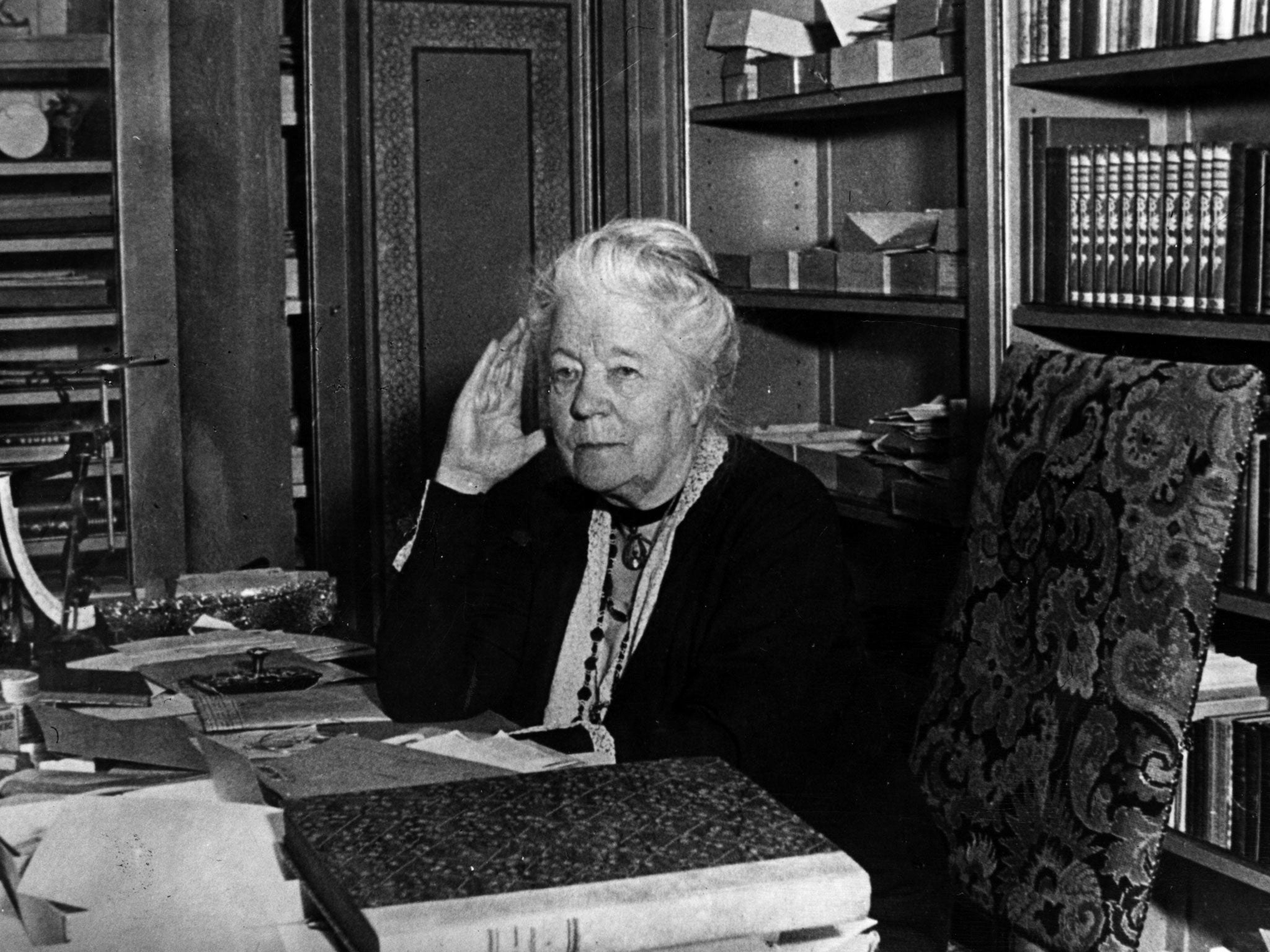Jerusalem by Selma Lagerlöf, book of a lifetime: Witty, captivating storytelling
Ingrid Carlberg's boyfriend asked her to read Lagerlöf's book before their trip to Israel

If people had told me when I was in my teens that I would one day be emotionally blown away by a novel from 1901 by Selma Lagerlöf (pictured), I would have declared them insane. Had anybody said that this book would represent an even greater cultural experience than when ABBA sang "Waterloo" in Brighton 1974, I would have laughed in their face.
As a child, I was a complete bookworm. I can still remember the titles of the books on my parents' well-stocked shelves. Selma's novels were in the middle. To me, her books looked much like the old-fashioned photos I had seen of her, like relics from the Stone Age; extremely unappealing.
Jerusalem, written in two parts, was the thickest and the least attractive of them all. But age was not the primary problem. Growing up, I devoured other Swedish Stone Age authors like August Strindberg. I even remember spending time dissecting his witty way of writing. And I couldn't understand why on earth this dusty Selma, and not Strindberg, had won the first Swedish Nobel Prize in Literature. Neither could Strindberg. He hated Selma for her prize, even more than he hated women in general.
Many moons later, my new boyfriend wanted me to travel with him to Israel. But under one condition: that I read Jerusalem before we went. I was in love. What else could I do?
The following day, I was lost to the world. I was too caught up in her universe to analyse it. I followed those emigrants from a small, Swedish village all the way to Israel; the poor people who had been told by an American preacher that God wanted them to travel to Jerusalem to join a Christian utopian society called American Colony. I smelled their sweat, sensed their pain, their hunger and their passion. The writing was not just witty. It was music. It was magic. I was captivated to my very soul, marvelling at Lagerlöf's seemingly effortless storytelling.
We arrived in Jerusalem in April 1990, my future husband and I. He had a surprise for me. He had booked a room at the famous American Colony hotel. And there they were, in old photos on the walls, the 37 real-life Swedes from the village of Nås who, in the name of God, had emigrated to Jerusalem in 1896.
Her photo was there as well. I studied her stubborn face and realised that as part of her research, she had made this long, demanding journey by herself, in 1899. In that moment I learned the most important lesson of all good literature: no magic without hard work.
Ingrid Carlberg's 'Raoul Wallenberg' is out now (MacLehose)
Subscribe to Independent Premium to bookmark this article
Want to bookmark your favourite articles and stories to read or reference later? Start your Independent Premium subscription today.

Join our commenting forum
Join thought-provoking conversations, follow other Independent readers and see their replies